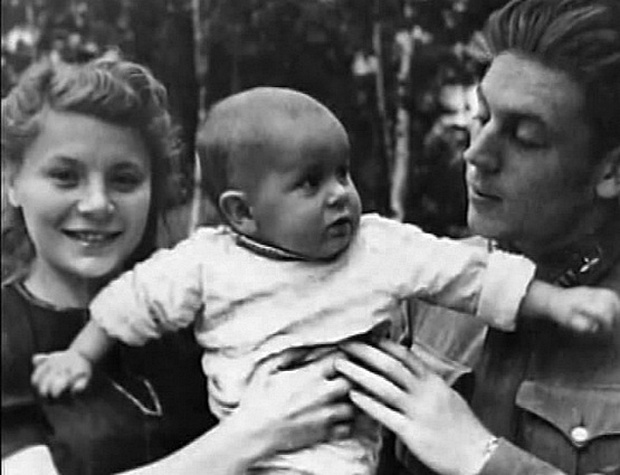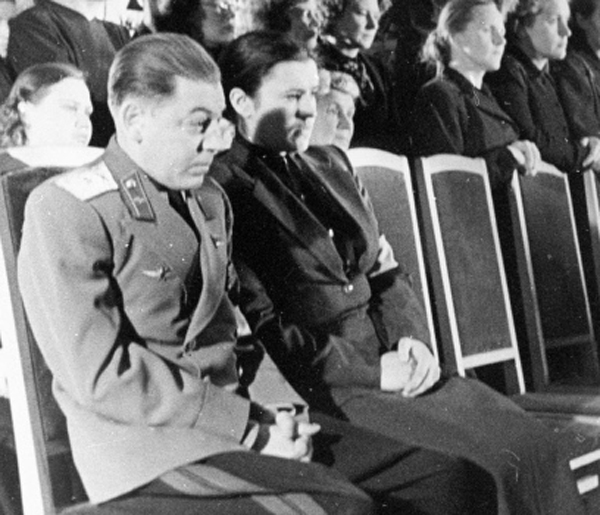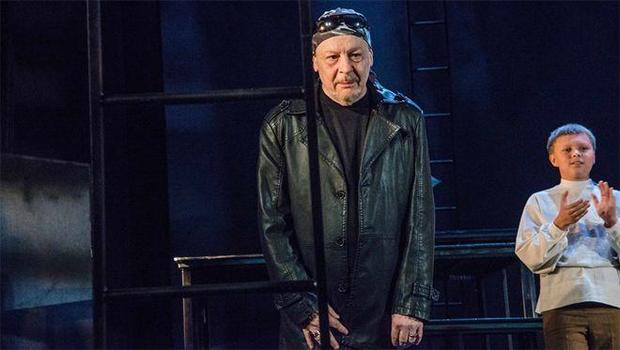Farewell to Vasily Stalin’s son: ''black prince'' from the Dzhugashvili dynasty passes away
Famous director Aleksandr Burdonsky died on 23 May evening
Aleksandr Burdonsky, director of Russian Army Theatre, Vasily Stalin's son, ''Father of Nations'' grandson died late on 23 May evening. All his life was a battle against circumstances of his affinity. Realnoe Vremya tells the details.
Black chick on the escalator
We got acquainted with Aleksandr Burdonsky in October 1989. In one of the first talks, he told about a documentary he saw once at the Moscow Cinema Festival. It was a film of Hungarian cinematographers about a poultry farm. Yellow chicks were running on a long line and when they reached the machine, it threw them into a basket.
A black chick was on the line. It also ran until they reached a necessary place, and the photocell did not work – the chick was of another colour. It is difficult to be a black chick, not like the others. Aleksandr Burdonsky initially was ''not like the others''. When he graduated from GITIS in Direction, Yury Zavadsky invited him to the Mossovet Theatre to perform Hamlet, the ''black prince'' for a reason. After long heart-searching, Burdonsky refused.
Named after Suvorov
He was born on 14 October 1941 in Samara, former Kuybyshev, where the clan of the Alliluyevs and Stalins was evacuated. His parents acquainted shortly before the war. Vasily Stalin almost stole his hockey player friend's fiancée – bewitching blonde Galina Burdonskaya. He romanced her beautifully. For instance, he could approach her yard on a small plane and throw a bunch of flowers. His father and another pilot Stepan Mikoyan arrived in Samara a couple of days later – Vasily Stalin wanted to boast about his son. He named him Aleksandr after Suvorov and planned his career as militant.

His parents divorced almost right after the war ended. And Vasily did not give his former wife the kids and forbade to see them in revenge. However, Aleksandr Burdonsky violated the ban once and saw his mother. When his father knew about it, he was punished: he sent his son to Suvorov Military School in Tver.
Burdonsky never saw his grandfather. Stalin was not interested in his grandchildren. Grandfather was a symbolic figure in the mausoleum for him that he could see at demonstrations. Galina Burdonskaya did not see her father-in-law as well, though it is known she was not affected by repressions after divorce thanks to Stalin's protection. One he called Beria and told him: ''Don't dare to bother Svetlana and Galina!''
When Stalin died, his grandson was brought to his grandfather's funeral. He was sitting near the tomb looking at the long procession of walking people. Stalin's death did not cause any emotion. His father was arrested soon, and Aleksandr and his sister Nadezhda returned to their mother.
Vasily Stalin who is an unclear, tragic figure spent his last years in exile in Kazan. He died here in mysterious circumstances. Burdonsky and his sister came to Kazan for his funerals. Aleksandr Burdonsky recalled later that Vasily Stalin's death was not officially announced. But the news spread in Kazan. Many people came to say him goodbye. People were constantly going to his flat on Gagarina Street. Men in civilian clothing came, opened flaps of their coats, orders were seen under them. This is how war veterans said goodbye to the war general – the brave pilot. Vasily Stalin was a real ace and did not hide at war.
''Because he is Stalin's grandson''
Burdonsky never thought of a career of militant. He thought of the theatre since he was a kid. Galina Ulanova seen in the Bolshoi Theatre and Vladimir Zeldin in Dance Teacher were two things that shocked him as a kid.

He decided to enter GITIS to study Direction. Stanislavsky's legendary pupil Maria Knebel whose family suffered from repressions enrolled students to the course. Later she told Aleksandr Burdonsky: ''Stalin's grandson was standing in front of me. And I understood that I could decide his fate at that moment. It lasted for a split second, and I said to myself: ''God, what am I thinking about! He is not guilty.'' Then Burdonsky became her favourite pupil.
He graduated from GITIS where he studied and simultaneously was a partner of future head director of the Kamal Theatre Marsel Salimzhanov but could not find a job in Moscow. Nobody wanted to hire Stalin's grandson as staff worker. Maria Knebel helped. She hired him as assistant for her performance He Who Gets Slapped in the Central Soviet Army Theatre. After the successful premiere, Aleksandr Burdonsky became the worker of this theatre that he never betrayed to his dying day.
View helped
Burdonsky never made his affinity with Stalin public. His view on his grandfather was always well-thought and objective. He deliberately never staged performances about Joseph Stalin, though such offers were made. And he never dealt with politics.
During Perestroika, he rehearsed a play by Erdman's The Mandate. Somebody tried to close the play that was brave during that time. Aleksandr Lyubimov helped. He invited the director to a very popular programme of that time called View, then many people knew that Aleksandr Burdonsky was Joseph Stalin's eldest blood grandson.
Aleksandr Burdonsky was one of the brightest representatives of Romanticism in the Russian theatre. Theatre was the biggest love in his life. He worked in Russian psychological theatre and never betrayed it. Now much bravery is needed for this. His Broadway Charades or Invitation to the Castle were perfectly stylish. La Dame aux Camélias– nostalgic and beautiful. Performances of Chekhov's plays looked like tender nocturnes.

Aleksandr Burdonsky was on tour in Kazan several years ago. And his performances were held to a full house. He could not visit the grave of his father – unclear ''relatives'' had reburied the ashes of General Vasily Stalin in Moscow by that time.
It is difficult to be a ''black chick''. It is difficult to resist the temptation having felt you are ''especial'' because of you are a relative of a famous person. It was also difficult to withstand the years of Stalin's overthrow and the dislike that was projected on his relatives by silly people. He withstood all the trials decently.